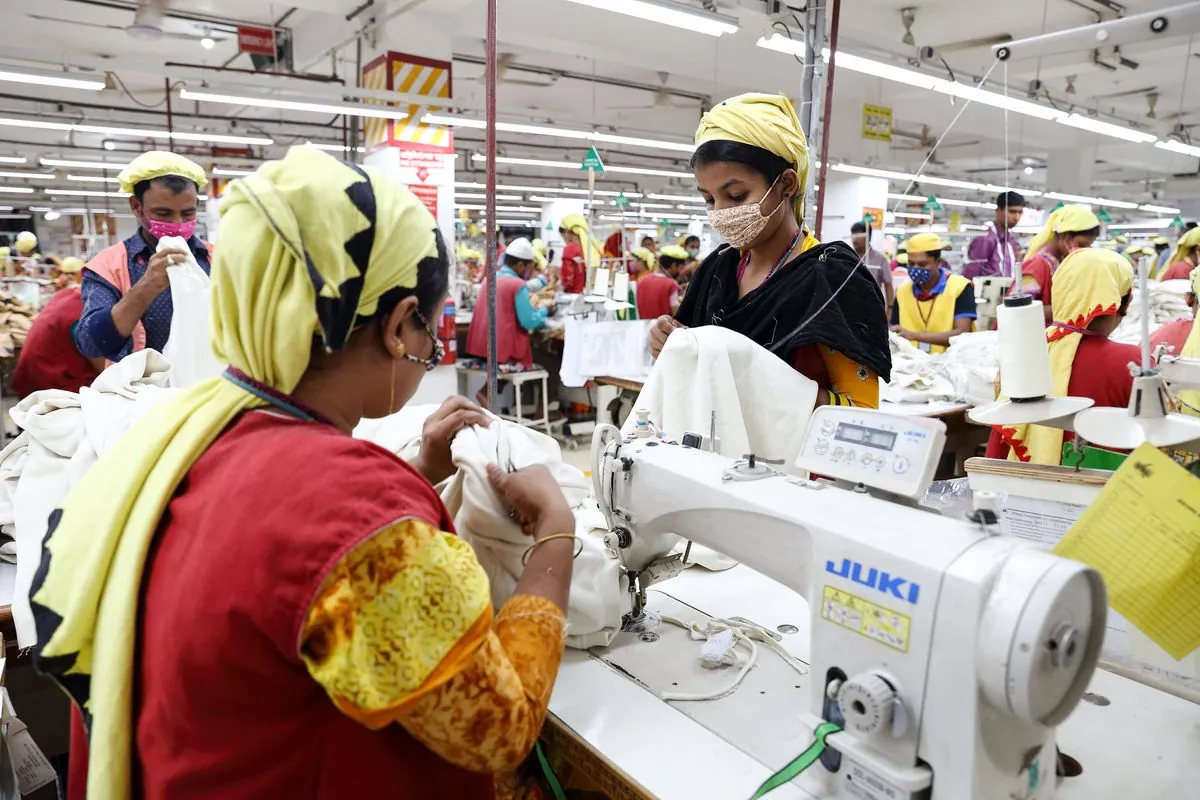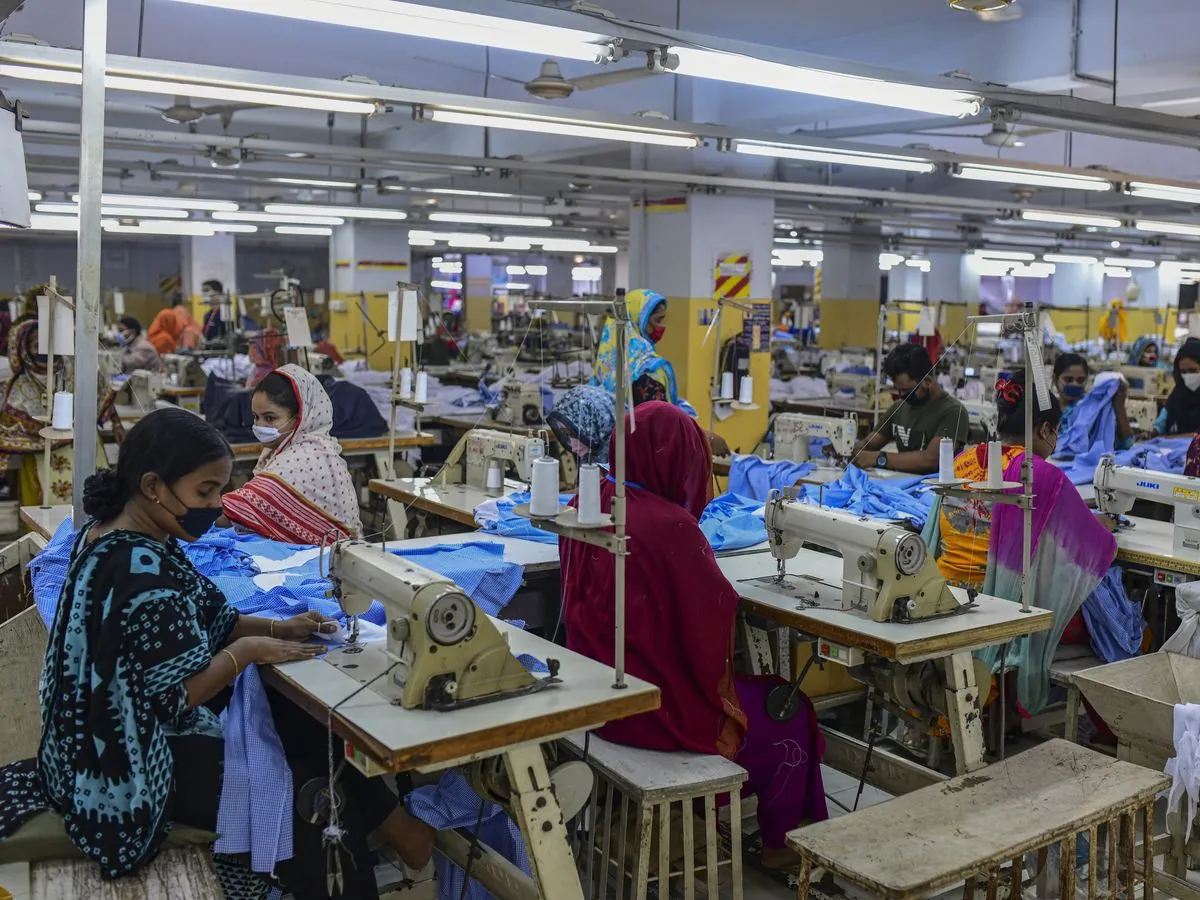Bangladesh's Garment Industry Resumes Operations Amid Political Turmoil
Bangladesh's crucial garment sector reopens following political unrest and PM's resignation. Industry leaders express optimism for swift recovery despite production losses and potential long-term impacts.

Bangladesh's garment industry, a cornerstone of the nation's economy, resumed operations on August 7, 2024, following a period of political upheaval. The sector, projected to constitute 90% of the country's exports in the 2024 financial year, faced disruptions due to recent violent protests that led to the resignation of Prime Minister Sheikh Hasina.
The unrest, which began in July 2024, resulted in approximately 300 fatalities and thousands of injuries. Hasina stepped down on August 5, 2024, amid the turmoil. The garment and textile factories, supplying major Western brands such as H&M, Zara, and Carrefour, had been forced to halt production under imposed curfews.
Miran Ali, vice president of the Bangladesh Garment Manufacturers and Exporters Association (BGMEA), expressed optimism about the industry's recovery. He stated, "We lost a total of four days, it is too early to make an estimate of the loss. There was little physical damage to factories." Ali anticipated a return to normalcy within days and expressed confidence in the support of international buyers.

The garment industry in Bangladesh has been a significant contributor to the country's economic growth since the 1980s. With over 4,500 factories, it employs approximately 4 million people and accounts for about 80% of the nation's total export earnings. The sector has set an ambitious target to export $100 billion worth of garments by 2030.
At Urmi Garments, a Dhaka-based apparel maker, workers returned to their sewing machines. Razia Begum, a 38-year-old employee, highlighted the economic necessity of resuming work: "We are poor people depending on daily wages and overtime. If we sit back home, how can we run our families?"
Emdadul Haq, the factory manager, reported production losses of 228,000 pieces, valued at $107,000. Across three units, Urmi, which supplies to H&M, Uniqlo, and Marks and Spencer, estimated a total loss of about $2.2 million.
"Once the client, then the factories, have invested so much time and money they will not just immediately run back, even when there's political stability. That can have a long-term impact for Bangladesh."
While major brands are expected to maintain their relationships with Bangladesh, some firms may reconsider their sourcing strategies. Hula Global, an Indian apparel producer, announced plans to redirect production from Bangladesh to India for the remainder of the year to mitigate risks.
Despite these challenges, Bangladesh's garment industry remains attractive due to its cost-effectiveness, with prices 15-25% lower than competitors, and 0% tariffs on exports. The country has been working to improve sustainability, reduce environmental impact, and enhance labor rights in response to international pressure following incidents like the 2013 Rana Plaza collapse.
As the world's second-largest garment exporter after China, Bangladesh's ready-made garment sector has played a crucial role in poverty reduction. However, it has also faced criticism for low wages and poor working conditions. The industry's resilience will be tested as it navigates the aftermath of recent political events while striving to maintain its position in the global market.


































